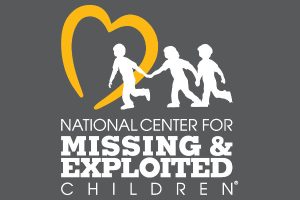NCMEC Report: CSAM Far More Common on Facebook Than Porn Sites
 WASHINGTON — The National Center for Missing and Exploited Children (NCMEC) released its latest round of data from its CyberTipline program that detects cases of CSAM on popular web platforms. Private web platforms, or electronic service providers (ESP) per NCMEC, and public information sources have reported to the center 29.3 million reports of potential CSAM and abuse against children online for 2021. 29.1 million of those reports were reported by the ESP participants in CyberTipline.
WASHINGTON — The National Center for Missing and Exploited Children (NCMEC) released its latest round of data from its CyberTipline program that detects cases of CSAM on popular web platforms. Private web platforms, or electronic service providers (ESP) per NCMEC, and public information sources have reported to the center 29.3 million reports of potential CSAM and abuse against children online for 2021. 29.1 million of those reports were reported by the ESP participants in CyberTipline.
The Guardian reported earlier this month that NCMEC saw a 35% increase in reports made in 2020 from 2021. This number is disconcerting, obviously.
Nevertheless, many of the adult platforms listed by NCMEC use monitoring software developed by the nonprofit Association of Sites Advocating for Child Protection (ASACP) and are participants in the Association’s Restricted to Adults labeling program.
“NCMEC applauds ESPs that make identifying and reporting this content a priority and encourages all companies to increase their reporting to NCMEC,” notes a statement from the organization, via The Guardian.
“These reports are critical to helping remove children from harmful situations and to stopping further victimization.”
Business units for MindGeek, the parent company of major tube sites like Pornhub, reported a total of just over 9,000 instances of CSAM found on their platforms. These reports also include some submitted by other MindGeek properties like RedTube, YouPorn, and Tube8.
Fenix International Limited, the parent company of OnlyFans, reported to NCMEC only 2,984 cases. The parent company of adult premium content site Clips4Sale only filed two reports throughout the entire calendar year of 2021.
By comparison, ESPs owned by Meta Platforms Inc. are considerably more compromised than adult sites.
Meta, the new parent company for Facebook, Instagram, and WhatsApp, reported over 22 million cases of CSAM and exploitative content on Facebook.com. Instagram had nearly 3.4 million cases. WhatsApp filed over 1.3 million cases to NCMEC. In total, platforms owned by Meta and under Mark Zuckerberg’s leadership account for about 26.8 million of the reports made to NCMEC by private ESPs.
Other mainstream social media platforms don’t even compare. TikTok reported 154,618 cases. Twitter reported 86,666 cases. Snapchat reported 512,522 cases. Reddit reported 10,059 cases. Dating apps owned by Match Group saw 158 reports. Tinder saw 3,642 reports. Grindr, the prolific gay hookup app, made 10,671 reports. Search engine giant Google reported 875,783 reports to NCMEC.
The National Center on Sexual Exploitation (NCOSE), a highly controversial anti-porn group attempting to co-opt the credibility of NCMEC to further their war against First Amendment-protected and lawful porn content, also made reports of CSAM to NCMEC. A total of 14 reports were made by NCOSE. I only mention this because NCOSE has accused many of the platforms listed on this year’s NCMEC list of being so-called “enablers” of sexual abuse.
Often, the ideologically-driven anti-porn activists of NCOSE claim that these “enablers” do nothing to protect their platforms and users from illegal content, including CSAM. Take the annual “Dirty Dozen” list the NCOSE releases. For the 2022 list, NCOSE named Verisign (341 reports to NCMEC in 2021) as an enabler of sexual abuse. Verisign is a publicly-traded internet infrastructure firm responsible for two of the web’s central root name servers. The company also operates crucial registries for many generic top-level domain codes and even offers sponsored top-levels like gov, job, and edu. The dirty dozen list also includes Netflix (yes, Netflix) for having mature television shows in their streaming library.
NCOSE is also the group that got Walmart to stop carrying Cosmopolitan magazine because of the periodical’s signature covers of scantily-clad celebrities and headlines advertising personality tests and sexual wellness tips. The group also listed the American Library Association, the national group advocating for librarians, and national academic database provider EBSCO for allegedly exposing kids to naughty things.
Oh, the humanity. Evidence shows, of course, that NCOSE’s accusations against Netflix, the ALA and EBSCO have no merit.
What’s more, is that the anti-porn group alleges that many of these “enablers” of sexual exploitation do nothing to try and prevent CSAM or the viewing of age-restricted materials by minors. That’s simply untrue. NCMEC data, including the latest set from 2021, shows major internet platforms taking proactive steps to protect minors from CSAM and exploitation.
By no means do I intend to suggest that CSAM isn’t a serious problem, or that it isn’t rampant online. It is, and those responsible for unlawfully exploiting minors should be punished to the fullest extent of the law. However, high numbers in CyberTipline reporting have very little to do with the legitimate, highly regulated adult entertainment industry. Groups like NCOSE routinely pervert and bastardize reputable messages and data, including those published by NCMEC, to suggest otherwise – and those distortions do nothing to help solve the problem of CSAM.













